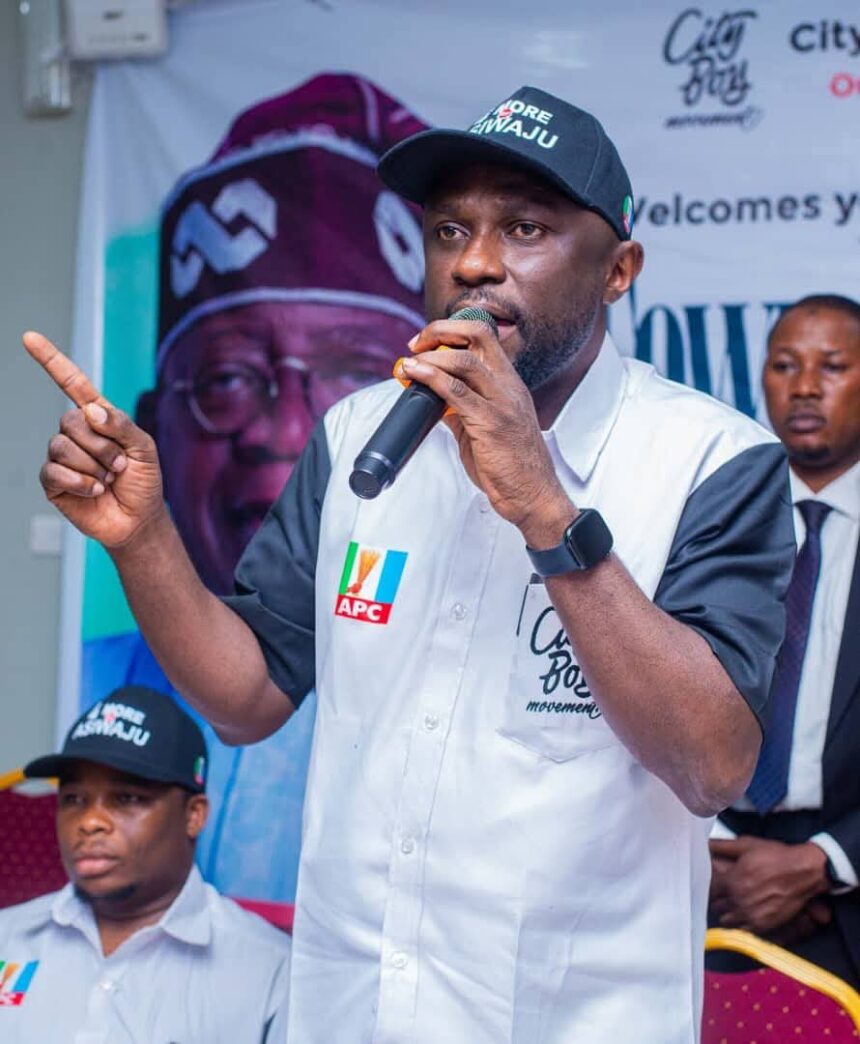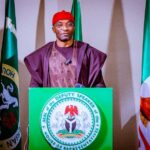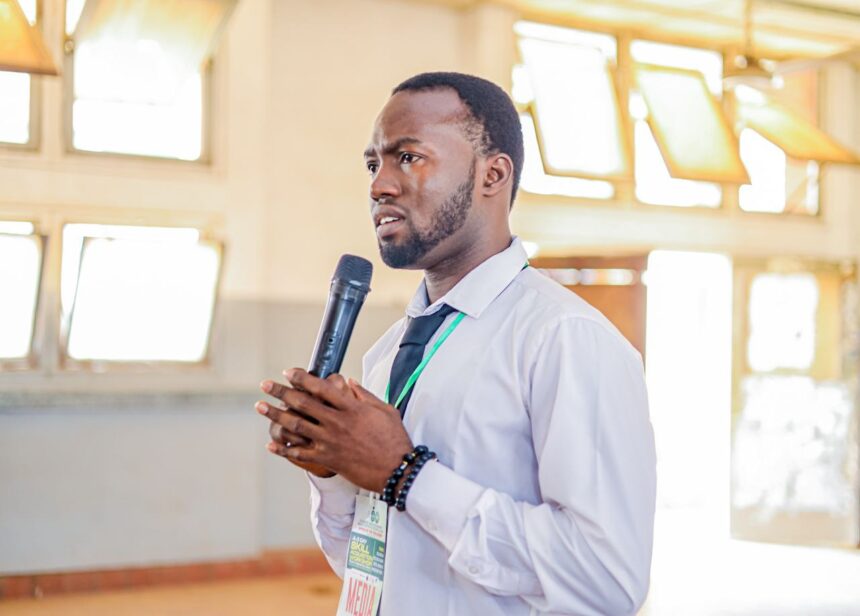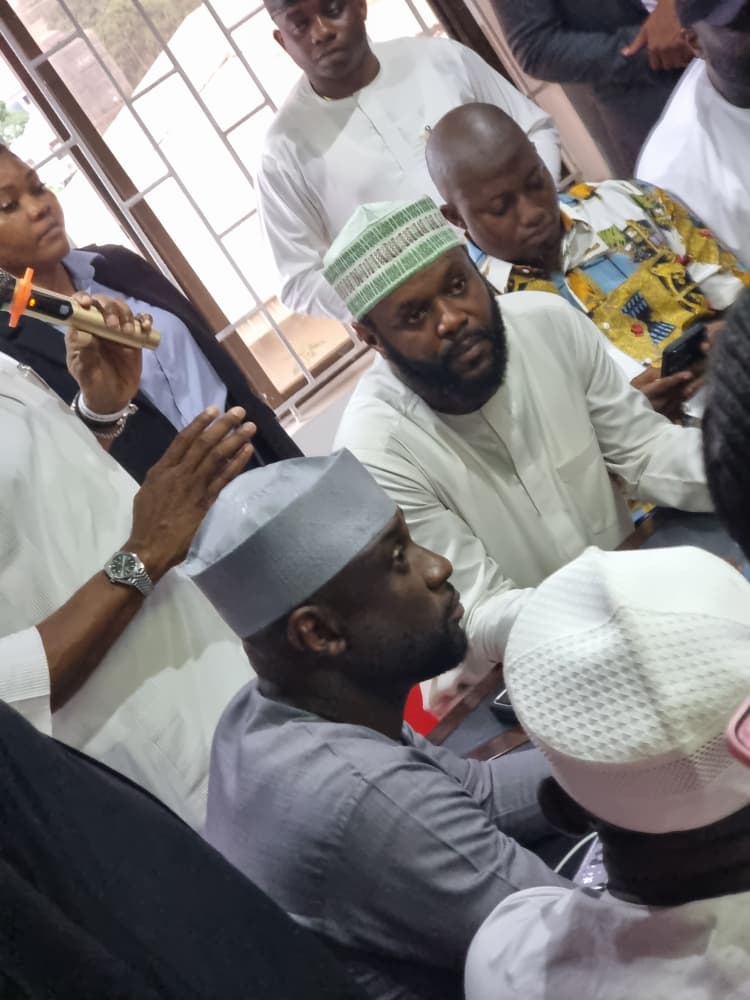By: Shafihi Abdulrasheed, ANIPR
Relentless. Conviction-driven. Self-sacrificing. Grassroots-focused. Mission-obsessed. These are not mere adjectives but the DNA of Francis Oluwatosin Shoga, Director General of the City Boy Movement. I must say, in every transformative political project, there exists an unsung cadre of believers individuals who labour not for immediate reward but from visceral conviction that the cause they serve transcends personal ambition. Shoga belongs to this rare breed. While charlatans and opportunists scramble for proximity to power, he has chosen the harder path: translating presidential vision into grassroots reality, converting policy into public understanding, and transforming skepticism into support through patient evangelism.
When President Bola Ahmed Tinubu’s political aspirations faced predictable resistance in 2023, it was not the loudest voices or fattest wallets that proved decisive, it was the quiet, methodical mobilization of Nigeria’s youth that helped. While others spoke ‘to’ the youth, Shoga spoke ‘with’ them. While others promised them tomorrow, Shoga mobilized them for today. The result was not the votes cast but a generation politically awakened. Tinubu’s emergence owed much to this youth surge, and Shoga was one of its architects, Shoga was on the field, from the streets of Oguta to Baruten, from Bida to Nnewi, Shoga was scheming, albeit, in the Gospel of President Tinubu’s candidature.
Yet victory, as we have come to learn, is merely prologue. Governance is where political romanticism meets the unyielding reality of Nigeria’s structural dysfunction. Upon assumption of office, President Tinubu confronted choices that would have paralyzed lesser leaders: remove the fuel subsidy that had become a monument to corruption, or continue the charade of cheap petroleum purchased with the nation’s future. He chose truth over popularity, long-term gain over short-term applause.
Two years and some months into this administration, the sphere tells two stories simultaneously. The objective record measured in economic reforms, educational initiatives, agricultural interventions, industrial partnerships, and investment inflows suggests a presidency of consequential action. Yet the subjective experience of the average Nigerian, crushed under the immediate weight of subsidy removal and currency adjustment, generates a narrative of suffering. This perceptual gap is where governance either succeeds or fails.
Policy without public understanding is merely technocratic maturation, intellectually satisfying for its architects but politically sterile. Nigeria needed translators, interpreters, evangelists who could bridge this chasm between presidential intention and popular perception. This is where Shoga re-enters the narrative.
If you seek Shoga in Lagos, you will likely find him in Imo. Search for him in Abuja, and he has departed for Akure, Edo, or Nasarawa. This is not the restlessness of ambition but the urgency of mission. Armed with resources drawn from personal conviction rather than state coffers, Shoga has embarked on what can only be described as national evangelism state by state. Youth gathering. Explaining. Elucidating. Promoting. Assuring.
As a technical personnel to the Director General, I have been privileged to witness this ministry firsthand. During engagements in Owerri, Lagos, and Akure, Shoga posed a deceptively simple question to halls filled with young people: “How many of President Tinubu’s initiatives are you aware of?” The silence was indicting. These were not apathetic citizens but uninformed ones a distinction that matters profoundly.
What followed each time was revelatory. As Shoga systematically outlined presidential programs nitiatives in economy, agriculture, student loans, infrastructure audiences transitioned from skepticism to curiosity to astonishment. Smartphones emerged; Google searches commenced. Young Nigerians discovered, in real-time, that their government had been working while they had been despairing, that policies existed which they had never heard articulated. This pattern repeated itself across states, validating the urgent need for his evangelism.
He explained the subsidy removal with the passionate clarity of someone who genuinely believes Nigeria deserves better than the narcotics of unsustainable populism. He detailed how today’s pain purchases tomorrow’s possibility, how a nation cannot subsidize its way to prosperity, how difficult decisions are the tax leaders pay for transformation. This is evangelism in its truest form not the mindless repetition of talking points but the patient, exhaustive work of persuasion rooted in conviction.
Back in the nation’s capital, Shoga’s office in Abuja has become an unlikely pilgrimage site. Youth groups, concerned citizens, civil society actors all who believe Nigeria can be better troop there seeking audience. And Shoga, in defiance of Nigeria’s political culture of gatekeeping and self-importance, welcomes them. His door remains open not because he seeks adulation but because he understands that national transformation requires coalition, not coronation.
It is noteworthy that the grand patron of the City Boy Movement who happens also to be the President’s son recently eulogized Shoga’s relentless service. This is far beyond nepotistic back-patting, as some may view it, but acknowledgment from the inner sanctum that evangelism of this caliber does not go unnoticed. When those closest to power recognize selfless service, it suggests that the service is not only genuine but effective.
Fellow Nigerians, make no mistake: there exist forces, domestic and perhaps external, invested in this administration’s failure. Disgruntled politicians who lost access to state capture; economic saboteurs whose rackets have been disrupted; ideological opponents who would rather Nigeria fail under Tinubu than succeed and validate their prejudices these forces work daily to amplify every difficulty and minimize every achievement.
Against this orchestrated pessimism, the nation needs truth-tellers. Not propagandists who deny reality, but evangelists who contextualize it. Shoga performs this function with a passion that cannot be purchased or manufactured. He believes genuinely, deeply in Tinubu’s vision for Nigeria. More importantly, he lives this belief daily, sacrificing comfort and resources to ensure that vision reaches those who most need to understand it.
Shoga’s expertise in youth mobilization, his professional acumen in business administration and organizational growth, his proven ability to formulate and translate complex policy into accessible narrative, these are not ornamental qualities but essential competencies for an administration seeking to consolidate support and deepen impact. If the Renewed Hope agenda is to survive beyond Tinubu’s tenure, it requires institutionalization. And institutionalization requires incorporating individuals who have proven their capacity and commitment.
For clarity, this is not a call for patronage but for pragmatism. Nations that succeed do so by deploying their best human resources in positions where they can multiply impact. Shoga has volunteered himself through action; the administration would gain immensely by formalizing this partnership.
If Nigeria is to realize the promise of the Renewed Hope agenda, it will be through the multiplication of people like Shoga young, committed, articulated, tireless. His evangelism deserves appreciation and amplification. His efforts warrant not just recognition but reward—not with sinecures or symbolic appointments, but with positions where his talents can be fully deployed for national benefit.
Tosin Shoga is the Renewed Hope evangelist Nigeria needs. The only remaining question is whether Nigeria’s leadership is ready enough to embrace him.
Shafihi Abdulrasheed is an Associate of the Nigerian Institute of Public Relations (NIPR), he writes from Abuja. He can be reached via sharvee2@gmail.com










